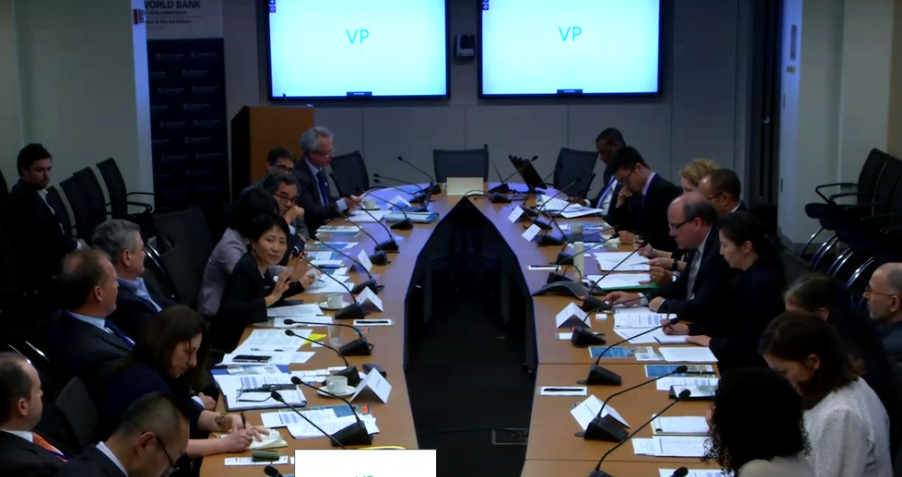More Coordinated and More Impactful: What a Common Sustainable Urban Development Strategy among IFIs is Leading to

Cities are playing increasingly profound roles in the promotion of sustainable development, alleviation of poverty and climate change. While national governments are critical leaders, there’s increasing interest by many stakeholders in promoting equitable, sustainable, and productive urbanization through working with cities. One year after a Joint Statement was signed during the Habitat III in Quito last October, it is inspiring to see the International Financial Institutions (IFI) network expand from the original eight to twelve. Building upon respective institutional mandates and governance structures, the Joint Statement laid a cornerstone for an inter-agency task force to develop effective and innovative ways to shape sustainable urban investments and development.
Policy makers and city practitioners are increasingly seeking advice from IFIs on how to optimize sustainable urban development and the critical steps needed to translate knowledge into actual investment opportunities. We respond with solutions developed by individual IFIs, but.…..
Would the results have greater impact if we increased our collaboration?
IFIs have long been working collaboratively to promote regional socio-economic objectives. Successful collaboration efforts among the development partners have yielded many useful tools and platforms for city learning such as the Global Protocol for City and Community GHG Accounting (GPC) and the Knowledge Center on Cities and Climate Change1.
Many IFIs and international organizations are leading various urban initiatives and, while modest differences exist, these initiatives share a common objective of providing guidance to cities in pursuing sustainable development through knowledge support and investments. There are programs like the Global Platform for Sustainable Cities (GPSC) that aims at bridging the gap between sharing knowledge and leveraging sustainable financial resources. The European Bank for Reconstruction and Development also helps cities to identify the investments required to address priority environmental challenges through its Green City Action Plan process. While we strive to better respond to the demands of converting knowledge and intentions to actual projects, the question left to us now is still how to better coordinate our efforts under a coherent framework. Instead of having the lessons from individual efforts go unnoticed, multistakeholder collaboration and coordination are crucial to gather this experience and to foster change on a much larger scale.
With a shared understanding of the potential impact that can be derived from collective action, senior representatives from various IFIs met at the World Bank Headquarters in April to explore approaches to better coordinate and collaborate on urban sustainability.
“Especially after the moving moment, when over 700 Mayors declared their commitment to the Paris Agreement in 2015”, noted Ms. Naoko Ishii, the CEO and Chairperson of the GEF, “it is critical for cities to have a united, coherent and coordinated sustainable urban development strategy”.
Our conversations revitalized the joint commitments to support the implementation of the “New Urban Agenda” while marking the first step towards coordinating efforts and resources across different urban development initiatives. Efforts led by each individual agency share many common elements in their approaches and methodologies, including climate change, defining the vision, and developing action plans and pre-investment plans. Such observation opens up unique insights into comparing the various approaches and sharing experience gained through the respective initiatives. In the meantime, it offers us a great opportunity of working together on the investment operation in the relevant cities with the objective of identifying co-financing opportunities.
During the meeting, several ideas for building common approaches were proposed with the intention that they will eventually lead to a more systematic and continuous engagement among members. For example, through the GPSC supported by the GEF, where most of the IFIs are part of the network, the IFIs can work together on capacity building in areas such as municipal financing, structuring PPPs, accessing green/climate finance and preparing municipals bonds. Besides connecting cities to cutting-edge knowledge and resources through development plans, in the long run, it is always our primary interest in identifying the paths to co-financing opportunities. The 2nd Global Platform for Sustainable Cities Annual Meeting taking place from October 30 to November 1 this year offers a great opportunity to bring this dialogue deeper and further, from vision to action.
Our shared belief is that the whole is greater than the sum of its parts. Therefore, where appropriate, an IFI network seeking common interest and coordinated approaches in sustainable urban development strategy will continue to remain active – discussing, sharing and collaborating in the World Bank Annual Meetings, in the GPSC Annual Meetings, and in many occasions beyond.
1. Building Sustainability in an Urbanizing World. World Bank. July 2013, http://documents.worldbank.org/curated/en/622651468320375543/pdf/801060R...
* Xueman Wang, Senior Urban Specialist, World Bank
* Nigel Jollands, Associate Director, European Bank for Reconstruction and Development
